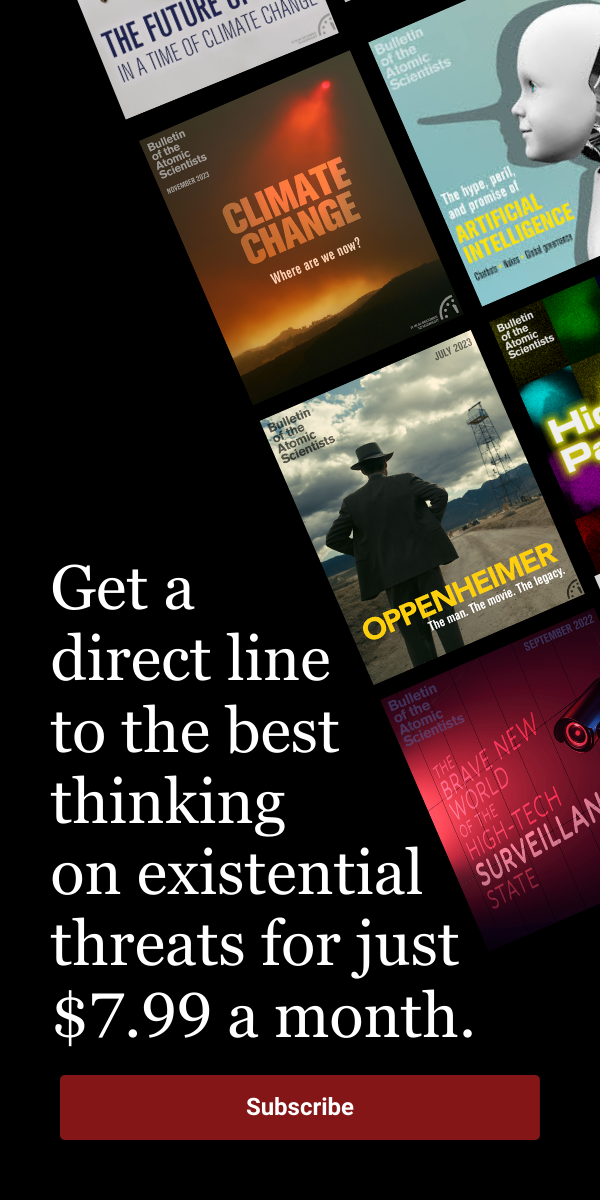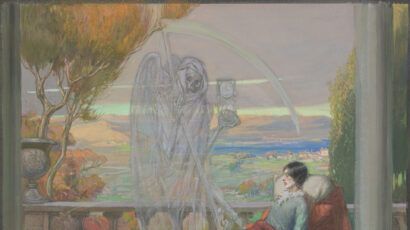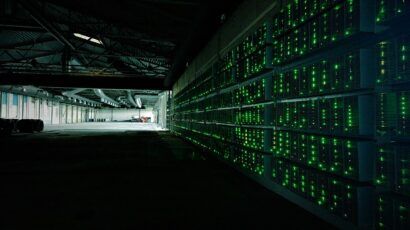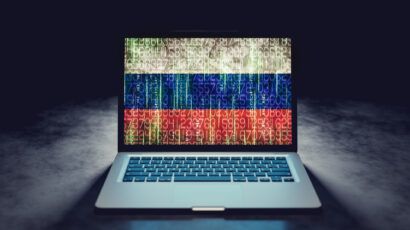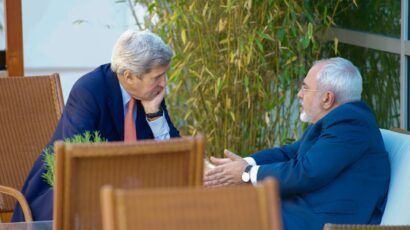Watch Now—Restricted Data: The History of Nuclear Secrecy
By Halley Posner | July 23, 2021
Watch the Bulletin virtual program, “Restricted Data: The History of Nuclear Secrecy” featuring author Alex Wellerstein in conversation with Lynn Eden.
If secrecy and science form the bedrock of the Atomic Age, what does this mean for a path forward? Watch above to learn more.
Read more about the Bulletin’s nuclear risk coverage and listen to all of our virtual programs.
Alex Wellerstein is a professor at the Stevens Institute of Technology in Hoboken, New Jersey. He is a historian of nuclear weapons, and the author of the recently-published book RESTRICTED DATA: The History of Nuclear Secrecy in the United States (University of Chicago Press, 2021). He has a PhD in the History of Science from Harvard University, and a BA in History from the University of California, Berkeley. Aside from his articles that have been featured in The New Yorker, The Washington Post, and Harper’s Magazine, among other venues, he is also know known as the creator of the NUKEMAP, an online nuclear weapons effects simulator that has been used by tens of millions of people worldwide.
Lynn Eden is Senior Research Scholar (Emeritus) at Stanford University’s Center for International Security and Cooperation. Her scholarly work focuses on the military and society; science, technology, and organizations; and US nuclear weapons history and policy. Eden’s Whole World on Fire: Organizations, Knowledge, and Nuclear Weapons Devastation won the American Sociological Association’s 2004 Robert K. Merton award for best book in science and technology studies. Her current historical research and writing asks how a specific US military planning organization has enabled very good people to plan what, if put into action, could or would result in the deaths of tens of millions of people. In other words, how do US military officers make plans to fight and prevail in nuclear war? The answer lies not in individual psychology but in common organizational processes such as abstraction, categorization, and fragmented responsibilities.
Together, we make the world safer.
The Bulletin elevates expert voices above the noise. But as an independent nonprofit organization, our operations depend on the support of readers like you. Help us continue to deliver quality journalism that holds leaders accountable. Your support of our work at any level is important. In return, we promise our coverage will be understandable, influential, vigilant, solution-oriented, and fair-minded. Together we can make a difference.
Keywords: Virtual Programs
Topics: Multimedia, Nuclear Risk

